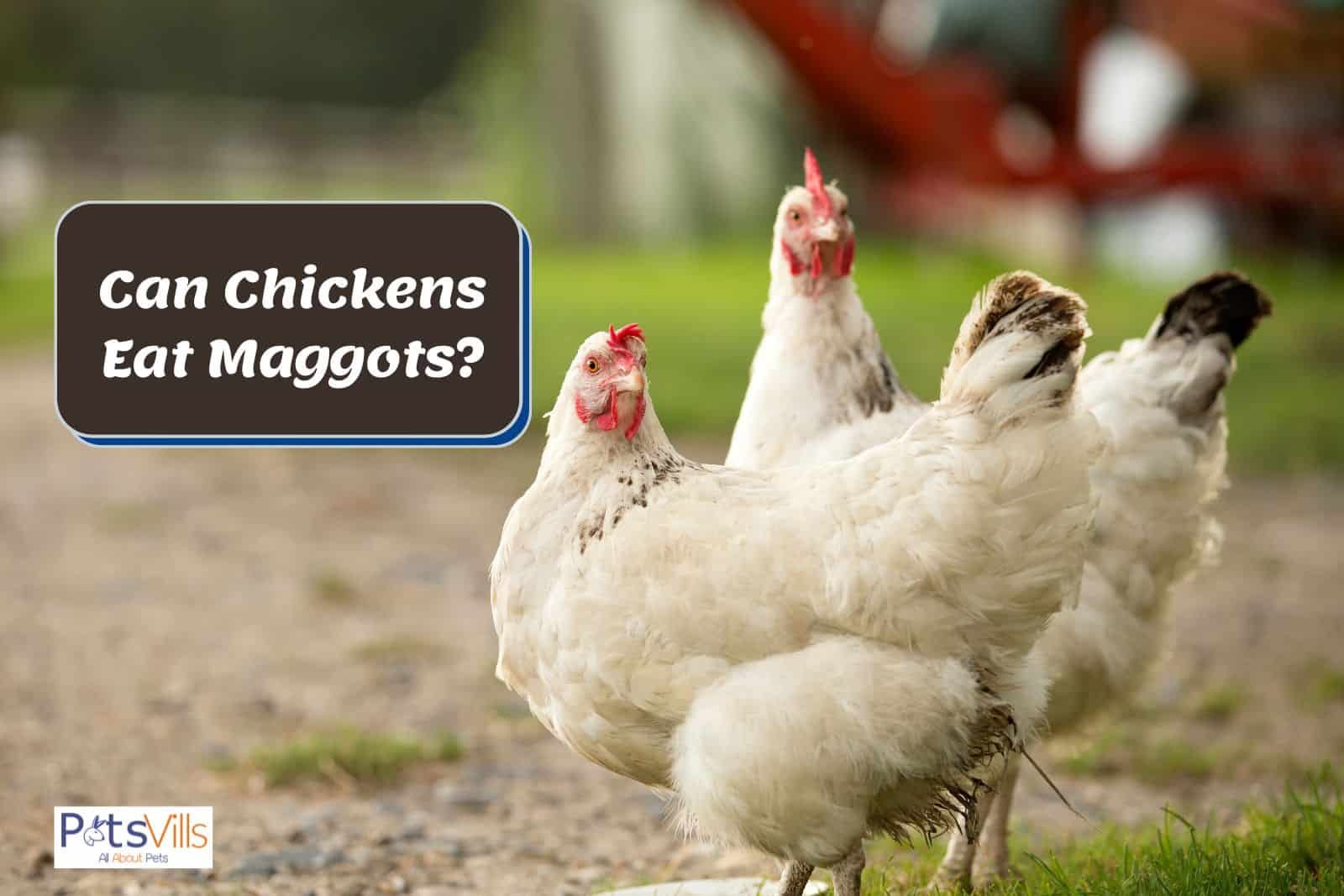Poking at the thought can chickens eat maggots? is difficult at times. Thankfully, I was stunned by this thought until I visited the chicken expert — and he said:
Yes, chickens can eat maggots.
Luckily, chickens usually find maggots on their own and see them naturally.
Since you’ll notice these slippery lifeforms naturally, you may wonder if chickens can eat them (keep scrolling to find out…).
Table of Contents
Key Takeaways
- These larvae are protein-rich and provide your chickens with a nutritious snack.
- Chickens usually find maggots, having mother nature by her course.
- Maggots can contain too much protein, harming your chicken in excess. So, as with everything meal-wise, moderation is key!
What Exactly Are Maggots?
If buzzing insects send shivers down your spine, you may wonder if you’re odd…
You’re NOT alone! A true terror and a favorite for a Stephen Spielberg horror, maggots are those terrible guys you want to keep away with a 10-foot bargepole — but, I promise, they aren’t all bad!
So what are maggots?
Maggots are insect larvae or the larvae of houseflies. You will find these guys around specific areas, especially near filth: Around the dumpster and rotten food.
“Fly maggots have no head and a cream to the white body that is distinctly tapered at the head and blunt at the rear.” writes Lee Townsend, Entomologist at the University of Kentucky College of Agriculture [1].
They appear as little worms and can be an excellent meal for chickens.
To wrap up, take a peek at this excellent, clever visual representation from Nat Geo WILD:
Is It Safe For Chickens To Eat Maggots?
So can chickens eat maggots? Now that you know the short end of it, I’ll discuss safety:
Maggots are safe for chickens to eat as they don’t have any toxins or poison that could harm them. But, depending on where you get the maggots, they may contain botulism.
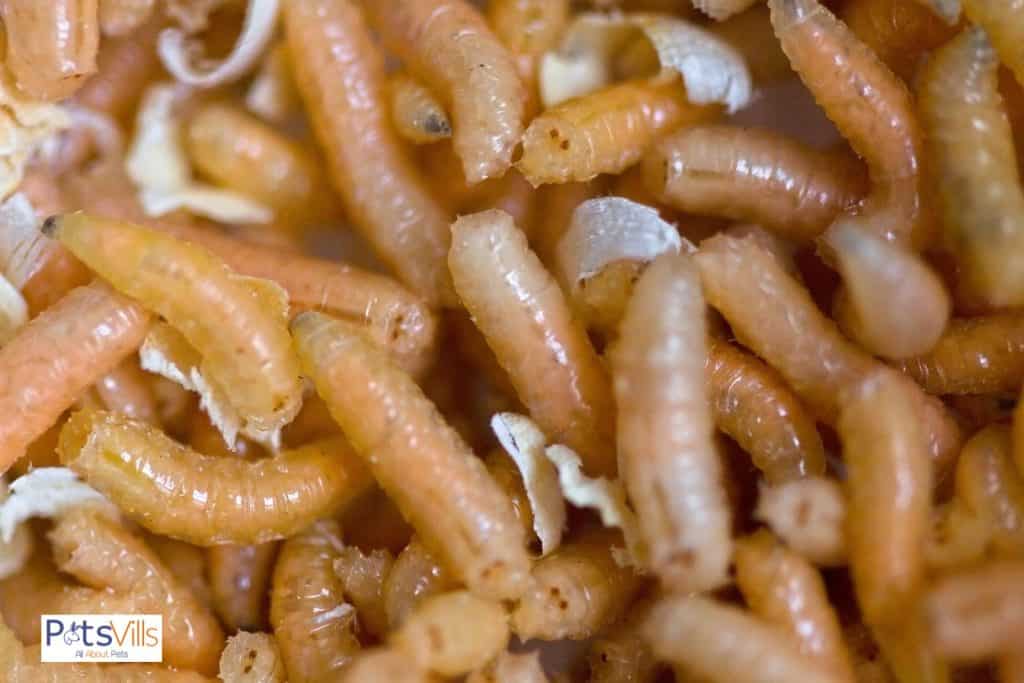
Botulism is a severe illness caused by a toxin that damages the body’s nervous system.
Chickens infected with botulism will have symptoms such as weakness of the muscles throughout the body.
You won’t need to worry about it much, as botulism is rare. To survive, it needs the right conditions, including a low-salt, low-acid, low-sugar environment at ambient temperatures.
If the chickens get botulism, it is not contagious and does not spread from chicken to chicken. Instead, it spreads from birds when they consume maggots infected with the toxin.
Maggots become infected by feeding on substrates and material on the ground that host the Type C BoNt. The chances of maggots becoming infected are rare and don’t usually happen.
Besides, it would help if you always take precautions when you allow chickens to feed on maggots.
Health Benefits of Maggots for Chickens
Maggots are high in protein, fiber, and calcium. The chickens need all these nutrients daily to keep them healthy and strong [2].
A maggot meal contains the following nutrients and composition:
- Crude protein 50.4% DM
- Crude fiber 5.7% DM
- Calcium 4.7 g/kg DM
- Phosphorus 16.0 g/kg DM
- Potassium 5.7 g/kg DM
- Sodium 5.2g/kg DM
- Magnesium 3.4 g/kg DM
- Manganese 91 mg/kg DM
- Zinc 119 mg/kg DM
- Copper 27 mg/kg DM
- Iron 995 mg/kg DM
The above data is from Feedipedia [3].
Further, I’ve listed some of the health benefits of feeding maggots to chickens:
1. Promote Digestion
Maggots are a good source of fiber, which helps keep the digestive system healthy. Fiber is essential for the chicken as it promotes regular bowel movement and prevents constipation.
A healthy digestive system will help move food along the digestive tract smoothly.
2. Keeps Bone Strong
As shown above, calcium is abundant in maggots.
Bones require calcium to keep them strong and healthy, and your young chickens must get plenty of calcium for proper bone development.
For hens that lay eggs, calcium is essential for producing quality eggs and helps prevent their bone from becoming brittle.
3. Produce Quality Eggs
Eggs require both calcium and protein for quality. When hens are given many of these nutrients during egg production, they produce bigger and better-tasting eggs.
Also, the hens require around 16% protein content to help them stay strong and healthy. Otherwise, they’ll become weak, and the result will be eggs decreasing in quality.
Are you wondering whether superworms or wax worms are safe and healthy for your chickens to eat? Check out our articles on ‘superworms for chickens‘ and ‘can chickens eat wax worms‘ for some useful information on feeding your feathered friends these tasty treats!
How To Feed Maggots To Chickens?
To feed maggots to your chickens, you can try 1 of 2 methods:
Method 1: Ground Toss
Toss them on the ground. The chickens will start to peck and eat them.
Method 2: Mixing
First, Mix them into the chicken feeds, enriching the meal with more nutrients.
Next, add a handful of maggots to their feed and mix it.
Then place it into their feeding bowl or place it on the ground.
How Many Maggots To Feed Chickens?
If your chickens find these maggots naturally, don’t worry about monitoring the process: chickens can feed on these slipper treats as much as they want.
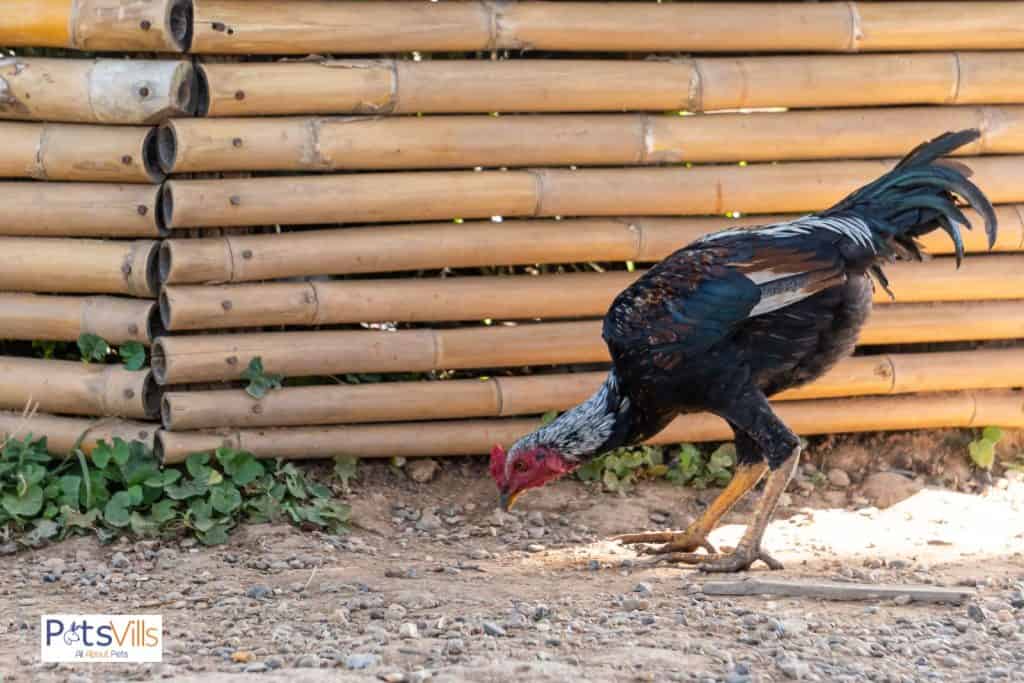
Usually, there will not be enough maggots for your entire flock to eat.
For that reason, you won’t need to worry about it.
On the other hand, if you’re cultivating maggots to feed your chickens, you should provide them in moderation. Maggots are high in fat content which can cause issues for the chickens.
About 10 maggots for every chicken is enough for them to eat.
FAQs
Can Baby Chickens Eat Maggots?
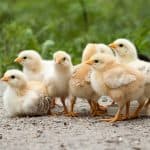
Yes, they can!
It’s healthy for them and provides a lot of protein they require to grow healthy and strong.
But don’t let your chicks under 2 weeks eat maggots. Their digestive system isn’t developed enough for this treat.
What are the best maggots for chickens?
Black Soldier Fly Larva.
Rich in protein, and calcium, these larvae pack a nutritious punch and will get your hens to lay healthier eggs.
Conclusion
So, can chickens eat maggots? You bet!
A great source of protein, maggots make an excellent treat for chickens, especially for your laying hens.
What’s great is that you don’t have to worry about finding maggots. Your chickens will do the work for you! What’s more, your chickens have their internal monitor and will stop when they have enough.
So if you decide to collect maggots, feed them in moderation to your chickens.
Besides, you don’t want your chickens to develop any health complications, which could be the effect of too much protein.
If you’re a responsible pet parent — I know you are! — check your chickens’ feeding. And most importantly, feed these maggots, as with everything, in moderation.
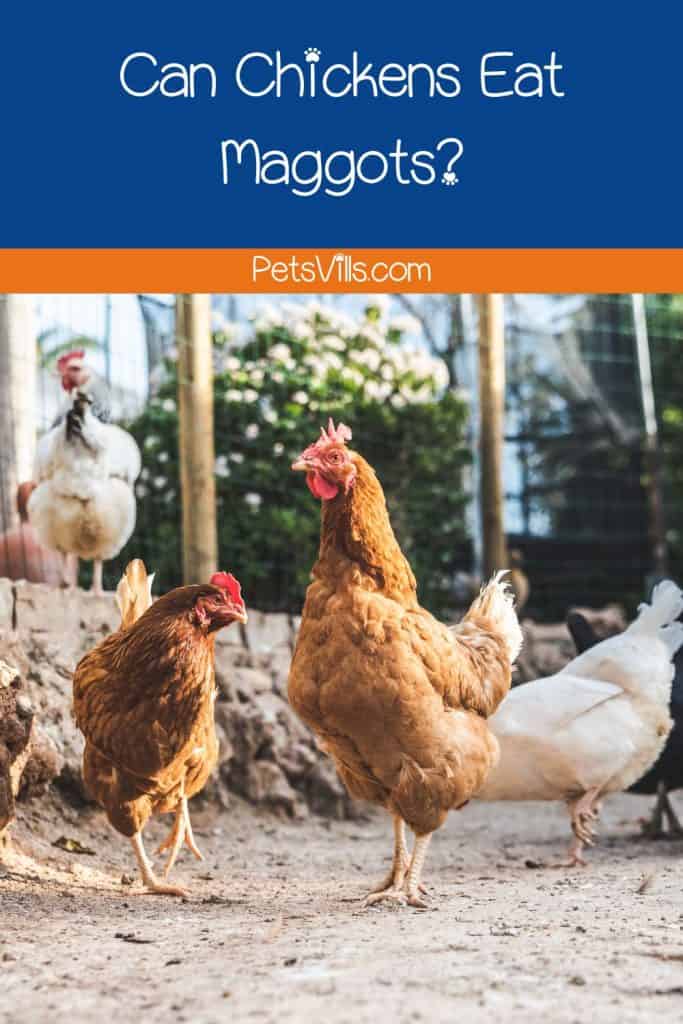
So, do you feed maggots to your chickens? Let us know in the comments section!
Resources
- 1. Sunny B, Sulthana L, James A, Sivakumar T. Maggot Infestation: Various Treatment Modalities. The Journal of the American College of Clinical Wound Specialists [Internet]. 2018;8:51–3. Available from: https://www.ncbi.nlm.nih.gov/pmc/articles/PMC6161638/
- 2. Ahmad I, Ullah M, Alkafafy M, Ahmed N, Mahmoud SF, Sohail K, et al. Identification of the economics, composition, and supplementation of maggot meal in broiler production. Saudi Journal of Biological Sciences [Internet]. 2022;29:103277. Available from: https://www.ncbi.nlm.nih.gov/pmc/articles/PMC8983407/#:~:text=Maggot%20meal%20comprises%2055%20percent
- 3. Housefly maggot meal | Feedipedia [Internet]. www.feedipedia.org. Available from: https://www.feedipedia.org/node/671
Alina Hartley is a small-town girl with a ginormous love of bearded dragons. It all started with Winchester, a baby bearded who was abandoned at the shelter by his former owners because of a birth defect that caused one front leg to be shorter than the other. Alina originally went to the shelter looking for a guinea pig, but one look at Winchester and it was love at first sight. From that day on, Alina has dedicated her life to learning everything she can about bearded dragons. She loves helping new beardie parents start their incredible journey with these magnificent reptiles.
Follow her on:
LINKEDIN
TWITTER.
Read her latest articles HERE
Learn more about her HERE.

